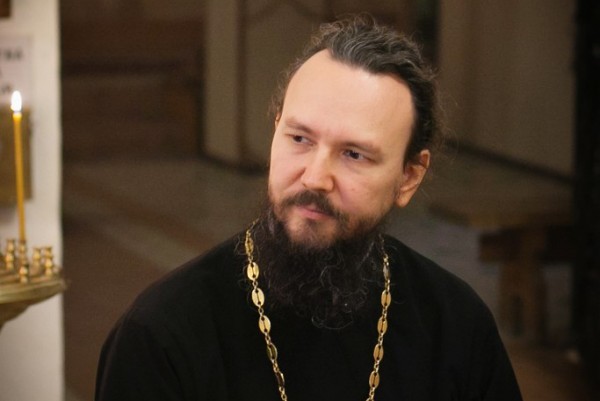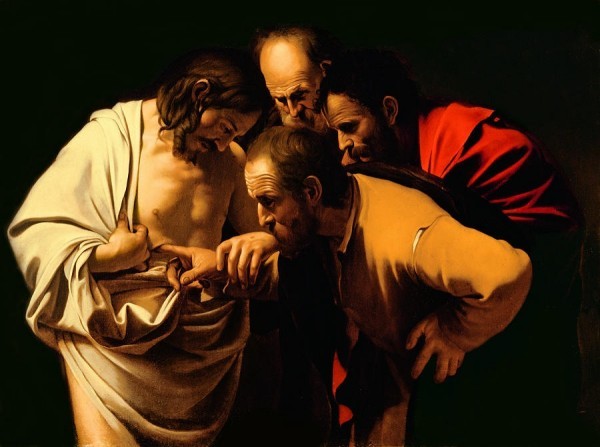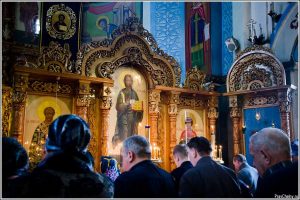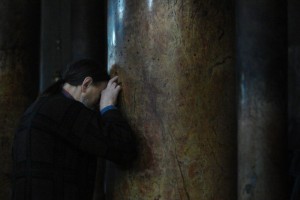Gospel of St. John, Chapter 20:19-31
19 Then, the same day at evening, being the first day of the week, when the doors were shut where the disciples were assembled, for fear of the Jews, Jesus came and stood in the midst, and said to them, “Peace be with you.” 20 When He had said this, He showed them His hands and His side. Then the disciples were glad when they saw the Lord.
21 So Jesus said to them again, “Peace to you! As the Father has sent Me, I also send you.” 22 And when He had said this, He breathed on them, and said to them, “Receive the Holy Spirit. 23 If you forgive the sins of any, they are forgiven them; if you retain the sins of any, they are retained.”
24 Now Thomas, called the Twin, one of the twelve, was not with them when Jesus came. 25 The other disciples therefore said to him, “We have seen the Lord.”
So he said to them, “Unless I see in His hands the print of the nails, and put my finger into the print of the nails, and put my hand into His side, I will not believe.”
26 And after eight days His disciples were again inside, and Thomas with them. Jesus came, the doors being shut, and stood in the midst, and said, “Peace to you!” 27 Then He said to Thomas, “Reach your finger here, and look at My hands; and reach your hand here, and put it into My side. Do not be unbelieving, but believing.”
28 And Thomas answered and said to Him, “My Lord and my God!”
29 Jesus said to him, “Thomas, because you have seen Me, you have believed. Blessed are those who have not seen and yet have believed.”
30 And truly Jesus did many other signs in the presence of His disciples, which are not written in this book; 31 but these are written that you may believe that Jesus is the Christ, the Son of God, and that believing you may have life in His name.

Archpriest Pavel Velikanov
Today’s Gospel tale about the conversion of Thomas is very poignant and touching. Indeed, the Apostles found it hard to accept the news of Christ’s Resurrection. To them this news was neither desirable nor intelligible. We see them resisting the Myrrh-Bearing Women; we witness their perplexity when they themselves meet the Resurrected Christ the Saviour. And yet, the position of Apostle Thomas seems especially peculiar.
Not only does he refuse to believe the Apostles’ words – he literally demands living proof. He says, I shall not believe until I touch Christ with my own hands, until I receive physical proof that He is Christ, the very same Jesus who was crucified on the cross and who still has wounds from the nails and the spear.
The Holy Fathers surprisingly praise Thomas’ unbelief and call it blessed. How do we understand the reasons behind this praise?
The thing is that Thomas’ unbelief is not contradicting, but affirming. It is affirming in the sense that when the source of the faith turns out to be real, it produces very serious consequences for a person’s entire life. And the Lord replies to this blessed unbelief by coming to His disciples when Thomas is present among them. He lets Thomas satisfy himself, He lets him touch His wounds and receive a complete corroboration that what he sees before Him is not a phantom, but his beloved Teacher.
Listening to today’s Gospel it is impossible not to be inspired by the Lord’s participation in the affirmation of our faith. For the Lord did not condemn Thomas, on the contrary, He praised him adding that blessed were those who had not seen but believed. And for this reason we should not fear unbelief when confusion or doubt enters our souls. We need to understand that unbelief is a small crisis that drives us to receive another affirmation from the Lord, another confirmation that the path we have chosen is the right one. Thus, ascending from unbelief to strong faith we may one day join St. Thomas in joyfully exclaiming, “My Lord and My God!”
Translated from the Russian by Maria Nekipelov




















